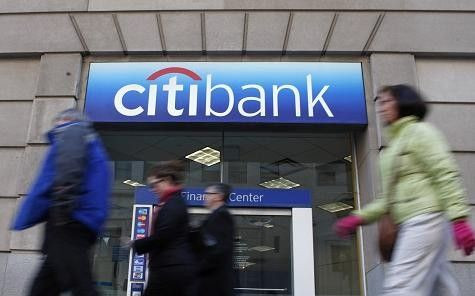How To Prevent Another US Bank Bailout
Analysis

Is it time for an unconventional U.S. public policy response, specifically, regarding the banking sector?
It may very well be.
A Public Bank
One major protest point/concern expressed by Occupy Wall Street is that in the response to the financial crisis, the affected major U.S. banks were bailed out, but the American people were not. The typical person got left holding the bag, if you will: the bill. Regarding this assertion, the facts, at least thus far in the financial crisis era, bear Occupy Wall Street out.
New York Times Business Columnist Floyd Norris perhaps put it best when he said, The financial crisis is one of those instances in which justice and success don't come together.
The U.S. government chose success, and don't let anyone tell you otherwise -- the bank bailout and related interventions were successful: The global financial system did not collapse. Your ATM worked throughout the crisis. There were no bank runs (at least not of the street-level variety.) The system that processes your checks and online banking payments did not malfunction. The western world did not suddenly revert to the barter system.
But the bank bailout also contained mistakes and flaws, and along the way -- you guessed it, and as Norris outlined -- the banks got rich. Or should one say richer? And justice was sacrificed.
Occupy Wall Street Says: Now It's Time For The Justice
The Occupy Wall Street movement argues that now a second half of the policy revision needs to be implemented: Justice must occur. The decentralized coalition has not issued a formal list of demands, but here's one they make want to consider in its search for an alternative banking system: a public bank.
Here's how it would work: A new, federal bank would be established to provide every citizen with a savings account, checking account, and debit card/online banking card. Bank employee salaries would be modest -- there would be no $1 million-a-year-earning bank executives or other layers of bank excess and waste. It would pay only a modest amount of interest, and there would be only a modest fee for selected transactions. Some investments would be made in U.S. Treasuries and other public sector bonds to cover the bank's operating costs. All deposits would be insured.
In a nutshell, the bank would serve the banking needs of the people, not shareholders or executives, as many private banks do.
Those citizens who want higher returns on their deposits and more-sophisticated banking services can deposit money in a typical, conventional, private sector bank. But there would be no FDIC insurance.
Most importantly, the new, federal bank would enable tens of millions of poor and working-class Americans to access banking services for a very low cost -- and not be burdened by fees and charges that enrich bank executives or shareholders at the expense of both the public and the common good/public interest. The new public bank would also free-up literally hundreds of billions of dollars currently wasted on bank fees and unreasonable charges -- money that can be put to better use in communities and in businesses.
Second, the bank probably would not need a bailout because its operations would be limited to serving the basic needs of its depositors -- it would not be permitted to make speculative investments, or other outlandish loans/deals. There would be no hedge fund divisions, 'sidecars' that invest money for special purposes, or offshore divisions.
In other words, it would be a bank of the people, by the people, for the people.
Typical, conventional, private sector banks would still be able to make high-risk/speculative loans and deals, it's just that, with public banks, there would be no federal bailouts, and depositors would lose their money, along with stockholders, too, if the private bank failed. In other words, the era of heads the banks win, tails the taxpayer and the public loses, would be over. At the public bank, banking would become boring again -- the way it should be for federally-insured banks.
Best Name For The Public Bank
What would be the best name for the new public bank? Perhaps the United States Citizens Bank. Or the Bank of the People of the United States. Or Public Bank.
The Bank of Lincoln also would be suitable, but there are so many banks in the U.S. named after the great Mr. Lincoln that it might create some confusion, and it also wouldn't be right to take away some other institution's branding niche.
Another possible name for the new public bank: Occupy Bank.
--
© Copyright IBTimes 2024. All rights reserved.





















